Dolgopolov -- from Ukrainian tennis star to warrior
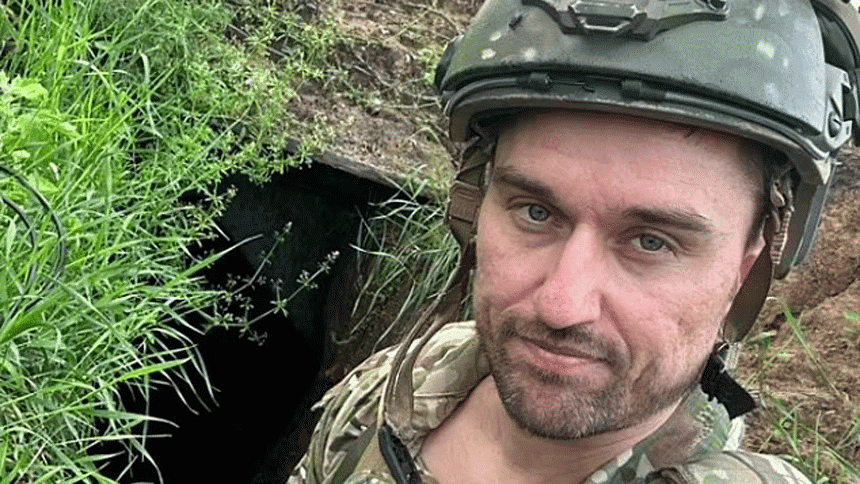
From representing Ukraine in the Davis Cup to donning military uniform on the frontline, Alexandr Dolgopolov has undergone quite a transformation in the service of his beleaguered country.
The 35-year-old 2011 Australian Open quarter-finalist is back in Kyiv awaiting a new deployment after serving on the frontline for several months defending his homeland against the Russian invaders.
He admits his family "were unhappy" at his joining up in 2022, a decision taken when he was watching TV images in Turkey where he had taken his sister and mother to safety after Russian president Vladimir Putin launched the invasion in February of that year.
"It is my home so I think you have to do something," Dolgopolov told AFP in a phone interview.
"There were lots of reasons, a courageous people, the barbarity of the enemy and I think just fighting for the good side, defending what is yours."
Dolgopolov said despite having no military experience, strange as it seems his time in professional tennis -- "I had been playing since I was two" -- served him well in certain respects.
Asked to contrast his former profession to his new role, Dolgopolov said, reaching for a comparison: "Sport is like a small war without killing people.
"Mentality helps you because in your (sporting) career you have to go through many, many tough moments like injuries, extreme heat, the travel. It's a tough job, top-level sports."
Dolgopolov once reached the heady heights of 13th in the world and won three titles before a long-term wrist injury ended his career prematurely in 2021.
Affectionately known on social media as 'Dog', he says his days on court may be over but old habits remain useful.
"Here in war when you have tough moments you know how you can recover from them, like being tired," he said.
"In other situations such as taking fast decisions like in tennis."
Even "good habits like being on time and being organised" have served him well in the military.
Dolgopolov said he had only once handled a gun prior to joining up and he largely did his military training on his own -- even buying his own rifle.
"A few times, maybe five to seven times, I had a little bit of training with professional military personnel," he said.
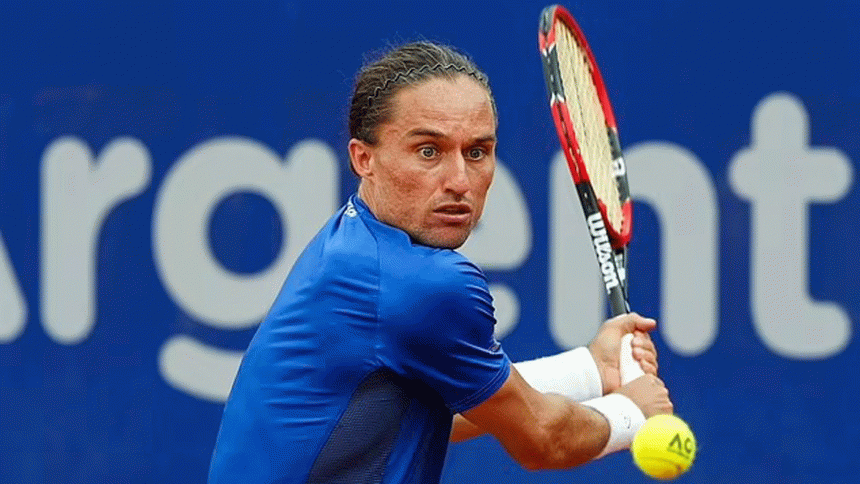
'How can Ukraine win?'
Dolgopolov -- who is in contact with another former tennis player turned soldier, Sergiy Stakhovsky -- said he was phlegmatic when he first visited the frontline in the Kherson region.
Indeed unnervingly so.
"I was not panicking myself as I am a bit of an adrenaline junkie," he said, explaining that he had thrived on "the big matches on the (tennis) circuit".
"The first time I visited the unit was under mortar shelling. Most of the unit had been fighting since 2014 when the invasion of the Donbass took place.
"Seeing them more nervous as myself I said OK. I did not understand what was going on.
"I was quite calm which is quite scary and not good for you as when you do not feel the fear you can take the wrong decisions."
Dolgopolov came through his first tour of duty unscathed but others were not so lucky -- a Georgian volunteer was killed.
"For sure that was a tough one for us," said Dolgopolov.
"He was quite a young guy, a really talented engineer and really nice.
"Engineers are like gold in a unit, as they lay mines and do demining.
"He was due to join us in a new place but he was still going out on combat missions.
"We asked him to stop as we were no longer on combat missions and he said OK, I will go on one last mission, but unfortunately he was killed."
Dolgopolov is sanguine about Ukraine's chances of success against Russia, saying the lack of resources is having an impact and the West is not supplying enough military equipment.
"We do not have enough to keep them out we could also see that in the counter-offensive," he said.
"They (the Russians) passed a defence budget of 100 billion dollars a year for next three years.
"In order to destroy them we need to triple that. They say if you attack you need triple the force and they spend so much money and have the advantage in everything from armour to the airforce to people.
"How can Ukraine win? Obviously we need much more equipment."

 For all latest news, follow The Daily Star's Google News channel.
For all latest news, follow The Daily Star's Google News channel. 

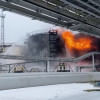
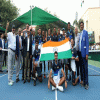


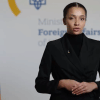


Comments